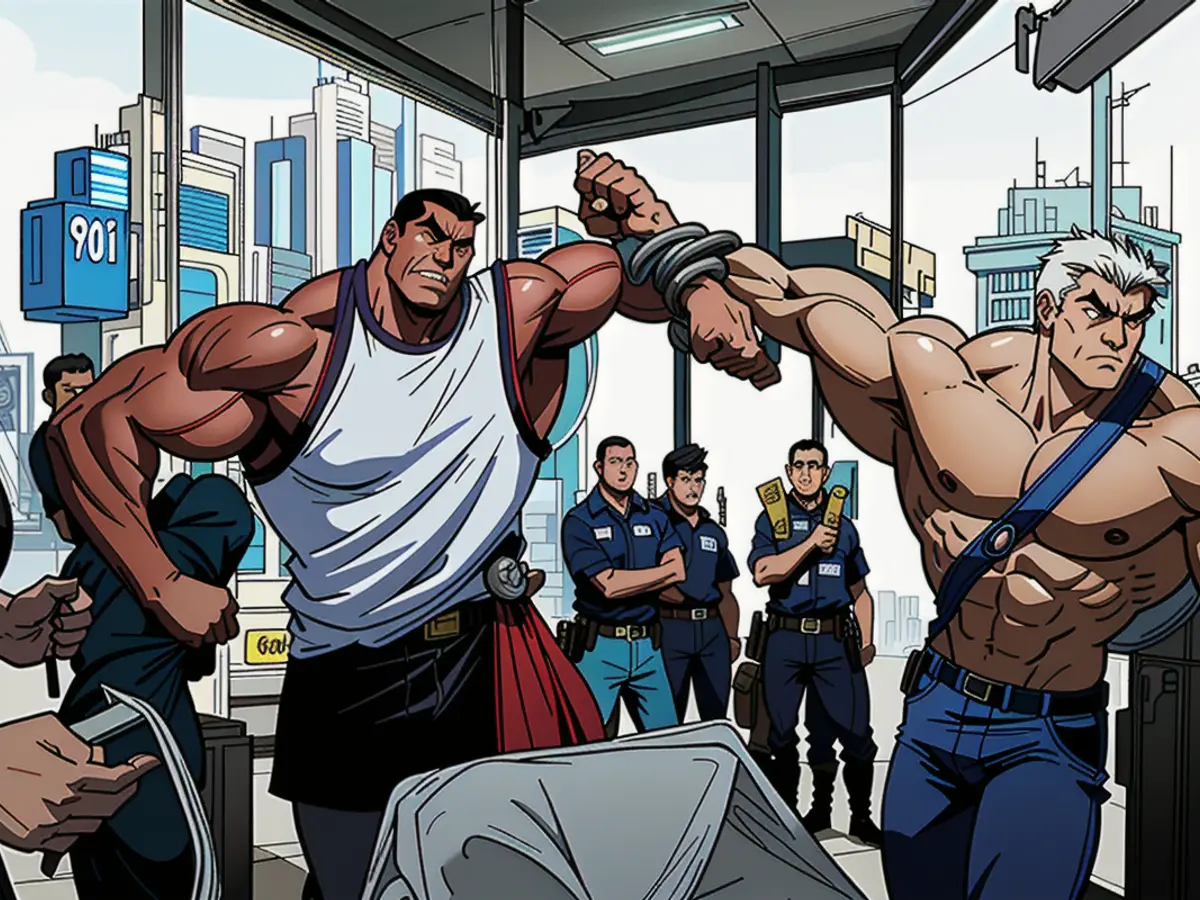Fresh Take on the Plight of Venezuelan Deportees in El Salvador's Controversial Prisons
Families in El Salvador can file grievances over alleged unjust imprisonment within the infamous mega-prison facility.
In the heart of Central America, families of detainees linger in anxious anticipation, their hopes pinned on a petition process that, in El Salvador's notorious Cecot prison, teeters on uncertainty. Rights groups holler accusations of arbitrary detention against the Salvadoran government, with the US State Department joining the chorus.
Cecot, El Salvador's infamous mega-prison notorious for its 40,000-person capacity and seemingly infinite corridors, houses the 261 Venezuelans, among others, who were recently deported from the United States. Denounced as members of the gang Tren de Aragua, these individuals were transferred to the Center for Terrorism Confinement, Cecot's ominous alias, making headlines as the largest prison in the Americas. Yet, families of the deportees contend the allegations, citing a lack of convincing evidence from both US and Salvadoran authorities.
The head of El Salvador's Human Rights and Freedom of Expression Commission, Andrés Guzmán, offers a glimmer of hope for these families. Those who believe their relatives are unjustly held within the Cecot walls can bring their grievances to Guzmán's office. However, it's unclear if this process will bear fruit in a country where rights violations loom large.
The US President, Donald Trump, and El Salvador's President, Nayib Bukele, have forged an unprecedented deal, with Bukele offering to house the US deportees in exchange for financial assistance to sustain El Salvador's penitentiary system. While the Bukele administration denies allegations of wrongdoing, rights groups raise concerns about the treatment of the detainees.
Controversially, the deal grants sweeping powers to Salvadoran authorities, enabling them to undertake arbitrary detentions and allegedly violate due process under El Salvador's 2022 state of emergency. This measure continues to this day, fueling a storm of discontent and tension escalating between the US and Venezuela.
Venezuela's government has redoubled its calls to secure the return of its citizens, with President Nicolás Maduro urging Bukele to relinquish custody. Meanwhile, Venezuela's special envoy for peace talks, Jorge Rodríguez Gómez, has announced an agreement with the US for the repatriation of Venezuelans detained in the US.
However, the Salvadoran government maintains that the rights of the deported detainees have been respected, and that foreign detainees are treated no differently than Salvadoran ones. Yet, the rhetoric fails to temper unrest, with crowds of Venezuelans protesting in Caracas, demanding the return of their relatives.
The road ahead for the families of these Venezuelan deportees is fraught with legal challenges, evidential gaps, and an uncertain petition process. Lawyers finding it difficult to access the detainees add to the complications, while a lack of legal framework for the detainments raises further concerns. The mistreatment allegations leveled against both governments underscore ongoing human rights concerns, casting a shadow over the fate of these detainees.
- The unlikely proposal to prove the innocence of the Salvadoran migrants, who were deported from the United States and housed in Cecot, El Salvador's notorious mega-prison, lies with the Human Rights and Freedom of Expression Commission of El Salvador.
- Despite the claims of Salvadoran authorities that they treat foreign detainees equally to Salvadoran ones, the Americas have been critically scrutinized for alleged human rights violations against these deportees.
- The world watches as the Salvadoren and Venezuelan governments continue to find themselves at odds, with Salavdoran authorities maintaining the rights of deported detainees and Venezuela pushing for their return, a situation that seems to remain an uphill battle, filled with legal complexities, evidential gaps, and uncertainty.








